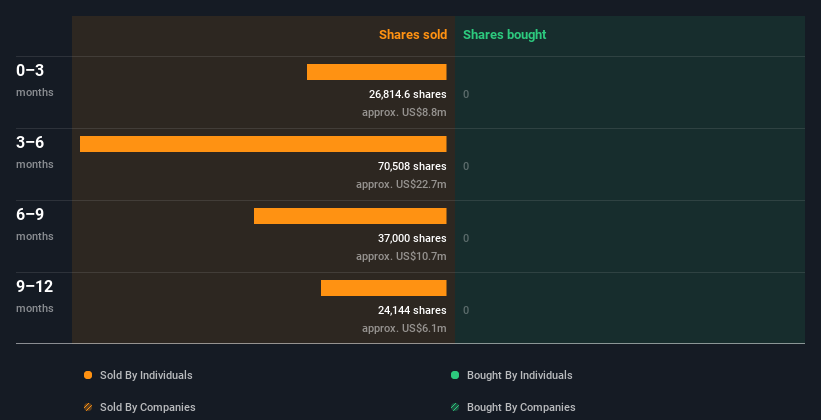Microsoft Insiders Sell US$49m Of Stock, Possibly Signalling Caution
Many Microsoft Corporation (NASDAQ:MSFT) insiders ditched their stock over the past year, which may be of interest to the company's shareholders. When analyzing insider transactions, it is usually more valuable to know whether insiders are buying versus knowing if they are selling, as the latter sends an ambiguous message. However, when multiple insiders sell stock over a specific duration, shareholders should take notice as that could possibly be a red flag.
Although we don't think shareholders should simply follow insider transactions, we do think it is perfectly logical to keep tabs on what insiders are doing.
View our latest analysis for Microsoft
Microsoft Insider Transactions Over The Last Year
Over the last year, we can see that the biggest insider sale was by the President & Vice Chairman, Bradford Smith, for US$17m worth of shares, at about US$338 per share. That means that an insider was selling shares at slightly below the current price (US$361). When an insider sells below the current price, it suggests that they considered that lower price to be fair. That makes us wonder what they think of the (higher) recent valuation. However, while insider selling is sometimes discouraging, it's only a weak signal. This single sale was just 8.6% of Bradford Smith's stake.
Insiders in Microsoft didn't buy any shares in the last year. You can see a visual depiction of insider transactions (by companies and individuals) over the last 12 months, below. If you click on the chart, you can see all the individual transactions, including the share price, individual, and the date!
I will like Microsoft better if I see some big insider buys. While we wait, check out this free list of growing companies with considerable, recent, insider buying.
Insiders At Microsoft Have Sold Stock Recently
The last three months saw significant insider selling at Microsoft. In total, insider Kathleen Hogan dumped US$8.8m worth of shares in that time, and we didn't record any purchases whatsoever. In light of this it's hard to argue that all the insiders think that the shares are a bargain.
Does Microsoft Boast High Insider Ownership?
I like to look at how many shares insiders own in a company, to help inform my view of how aligned they are with insiders. We usually like to see fairly high levels of insider ownership. Microsoft insiders own 0.03% of the company, currently worth about US$890m based on the recent share price. This kind of significant ownership by insiders does generally increase the chance that the company is run in the interest of all shareholders.
So What Do The Microsoft Insider Transactions Indicate?
An insider sold stock recently, but they haven't been buying. Looking to the last twelve months, our data doesn't show any insider buying. But it is good to see that Microsoft is growing earnings. It is good to see high insider ownership, but the insider selling leaves us cautious. So these insider transactions can help us build a thesis about the stock, but it's also worthwhile knowing the risks facing this company. While conducting our analysis, we found that Microsoft has 1 warning sign and it would be unwise to ignore this.
Of course Microsoft may not be the best stock to buy. So you may wish to see this free collection of high quality companies.
For the purposes of this article, insiders are those individuals who report their transactions to the relevant regulatory body. We currently account for open market transactions and private dispositions of direct interests only, but not derivative transactions or indirect interests.
Have feedback on this article? Concerned about the content? Get in touch with us directly. Alternatively, email editorial-team (at) simplywallst.com.
This article by Simply Wall St is general in nature. We provide commentary based on historical data and analyst forecasts only using an unbiased methodology and our articles are not intended to be financial advice. It does not constitute a recommendation to buy or sell any stock, and does not take account of your objectives, or your financial situation. We aim to bring you long-term focused analysis driven by fundamental data. Note that our analysis may not factor in the latest price-sensitive company announcements or qualitative material. Simply Wall St has no position in any stocks mentioned.

 Yahoo Finance
Yahoo Finance 
